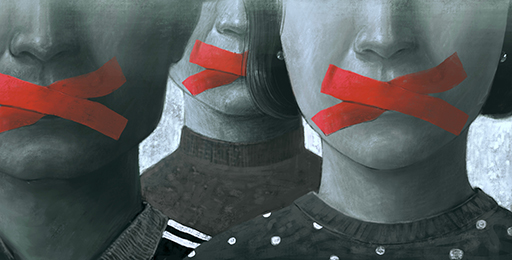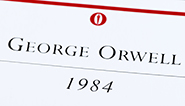6.2 Free speech
A key theme of Nineteen Eighty-Four is freedom of speech and the use of language. In the novel, people are not free to speak out or even to think certain thoughts. The use (and misuse) of language is now also a feature of contemporary politics. Threats to free speech and ‘de-platforming’ those whose views are thought to be ‘disagreeable’ or cause ‘offence’ are now at the frontline of today’s ‘culture wars’. On one side are those who argue that in a democracy people must be allowed to speak freely – even if that means airing views that might offend others. On the other side are those who defend their right ‘not to be offended’ – and who argue that what one group claims as the right to free speech is more about that group maintaining its power and privilege.

The terms ‘troll’ and ‘Twitterstorm’ are recent additions to our vocabulary. Social media allows many people to connect with others in positive ways. However, social media also disinhibits. When you encounter ‘strangers’ in person, your behaviour towards them (and theirs towards you) is governed by widely understood norms and customs – the ‘unwritten’ rules of civility which help to order society. These norms and customs are largely absent from social media.
Free speech was important to Orwell as a writer. Does everyone have an equal right to speak out on any topic? Has Twitter, for example, democratised politics and allowed more people to have a voice? Or has it fuelled a tribal regressive politics which encourages the censorship of speech and ideas and a mob outrage more reminiscent of the ‘two minutes hate’?
Activity 5
What do you think Orwell would make of today’s ‘free speech wars’?
Discussion
In ‘The Prevention of Literature’, an essay written in 1946 when he was still formulating his ideas for Nineteen Eighty-Four, Orwell wrote the following:
There is no such thing as a genuinely non-political literature, and least of all in an age like our own, when fears, hatreds, and loyalties of a directly political kind are near to the surface of everyone’s consciousness. Even a single tabu can have an all-round crippling effect upon the mind, because there is always the danger that any thought which is freely followed up may lead to a forbidden thought.
